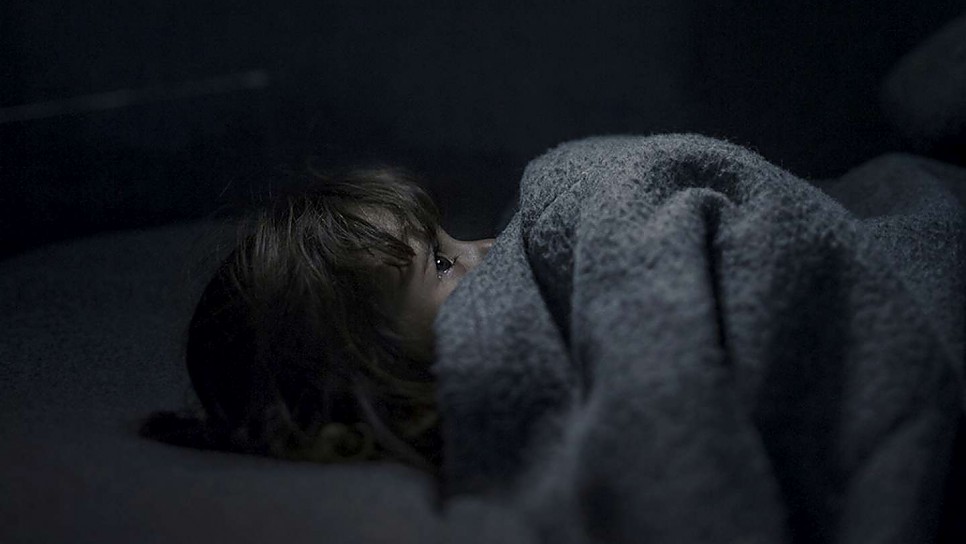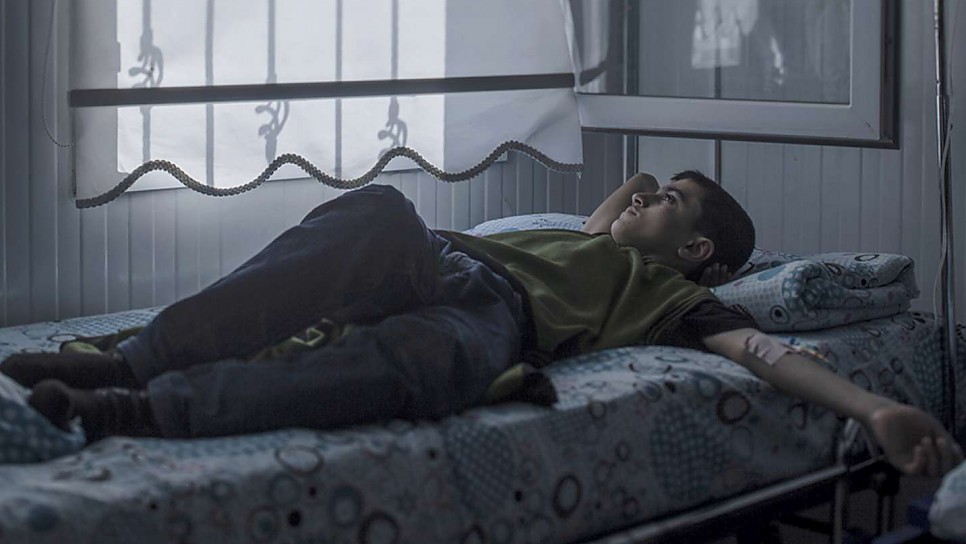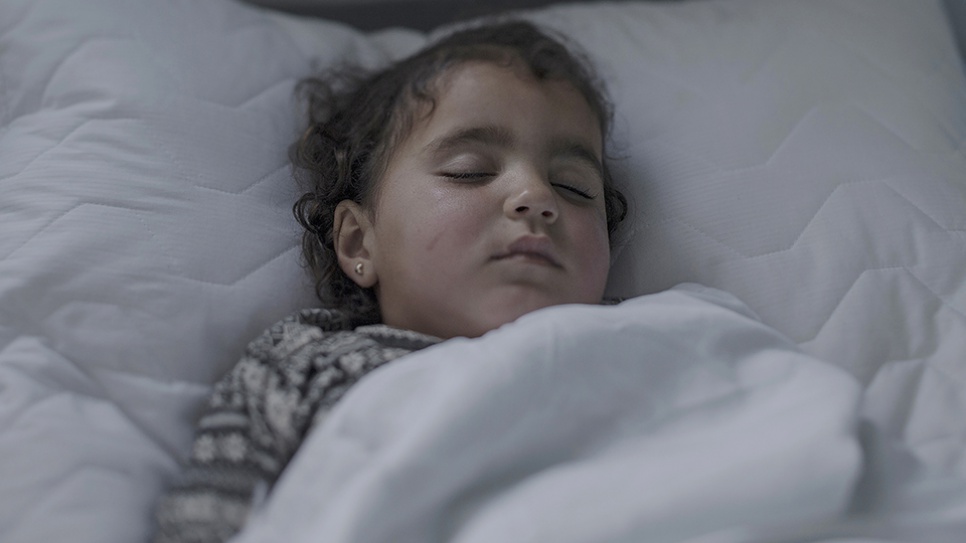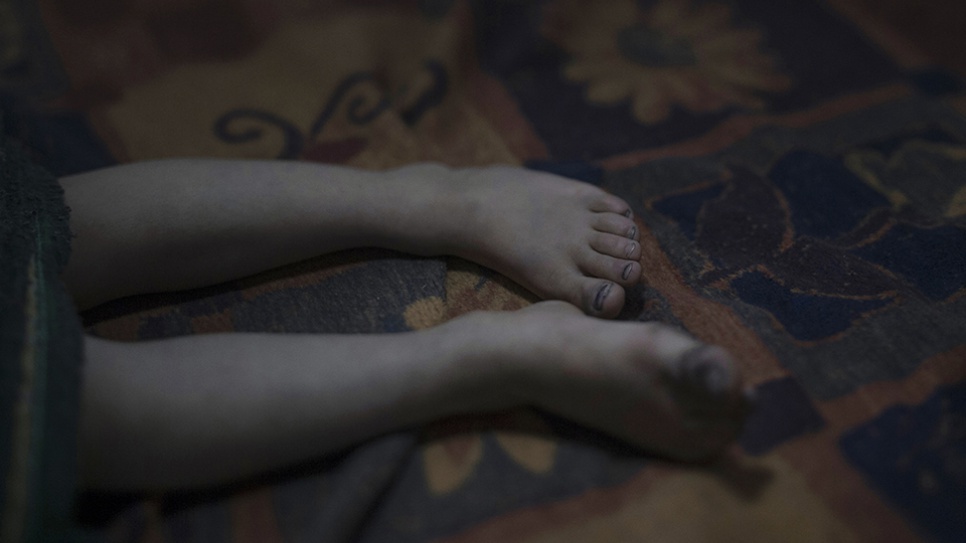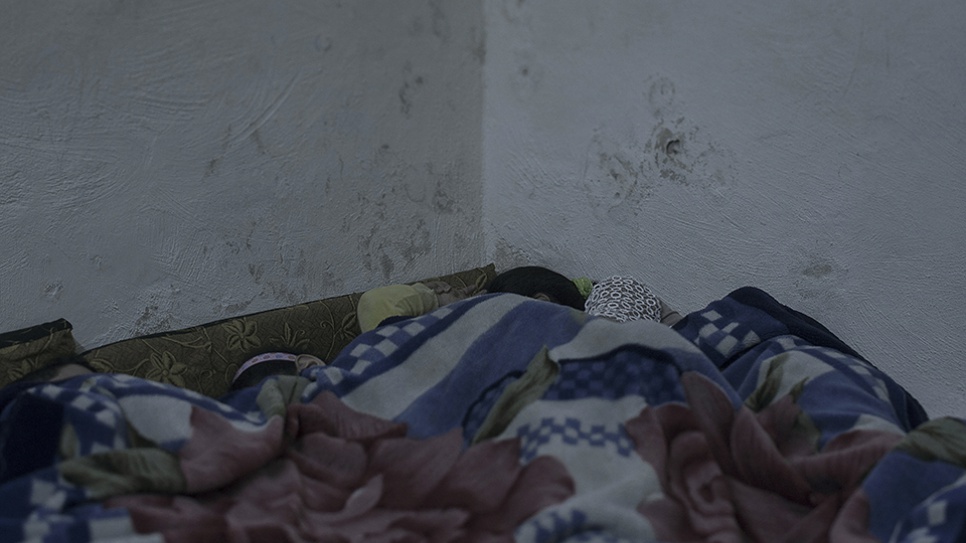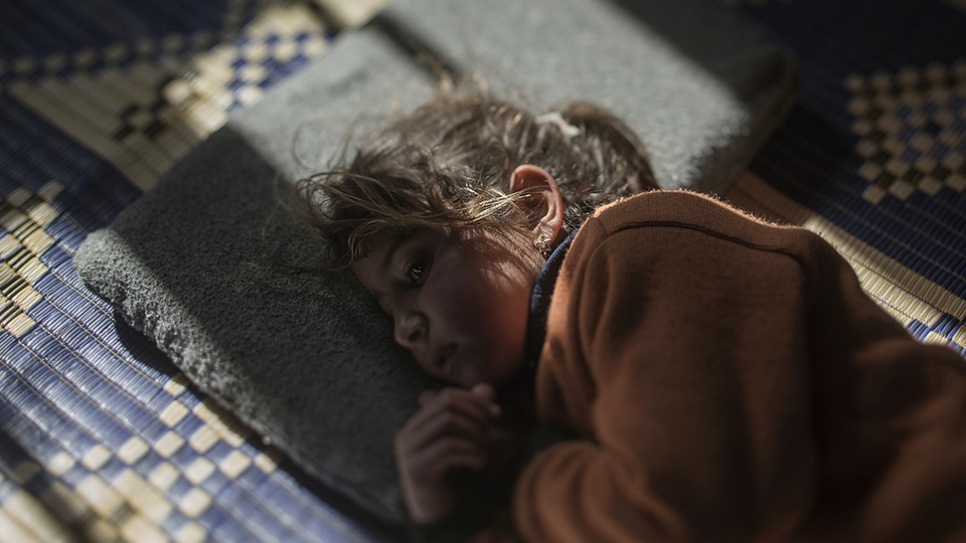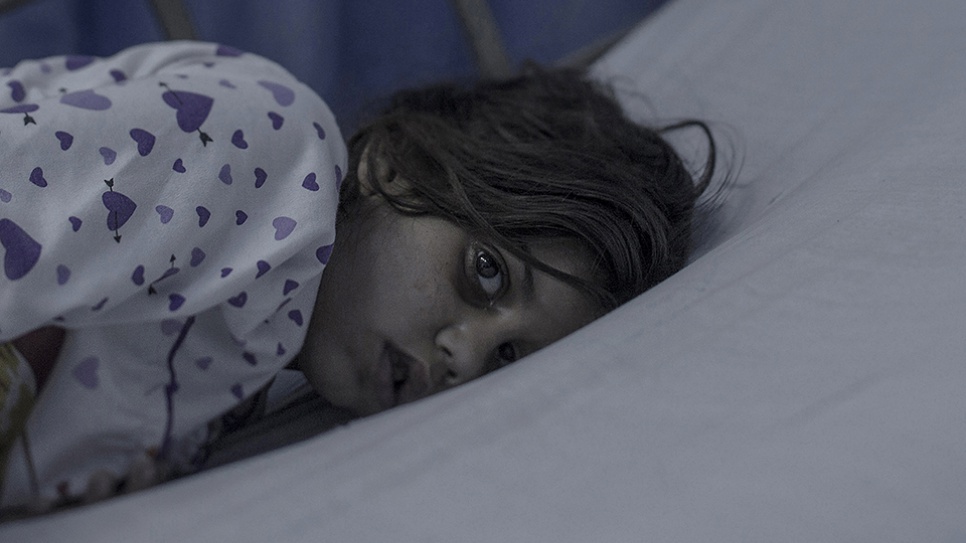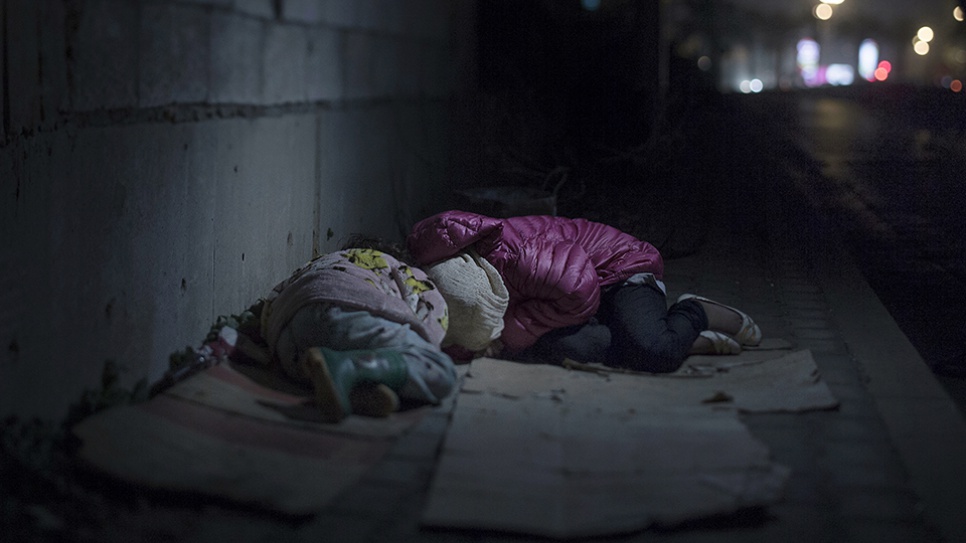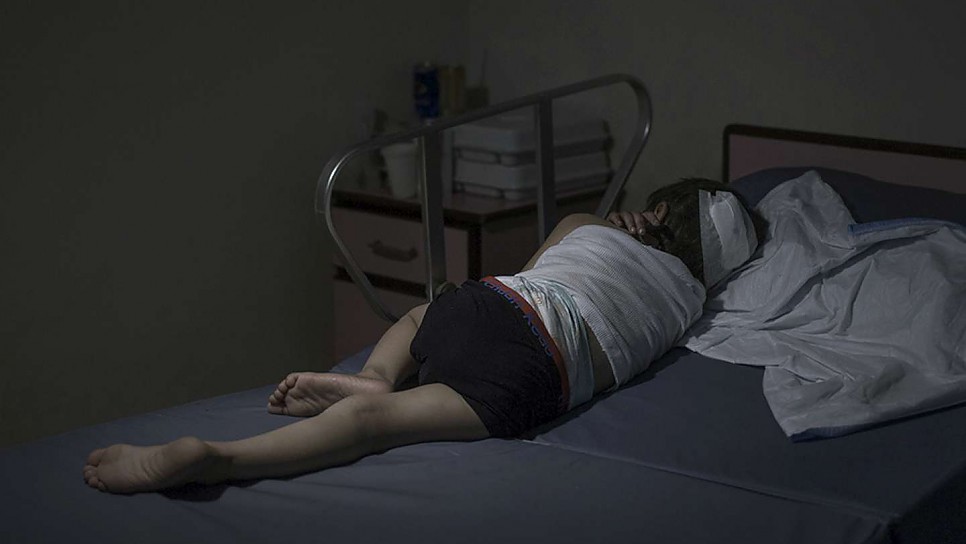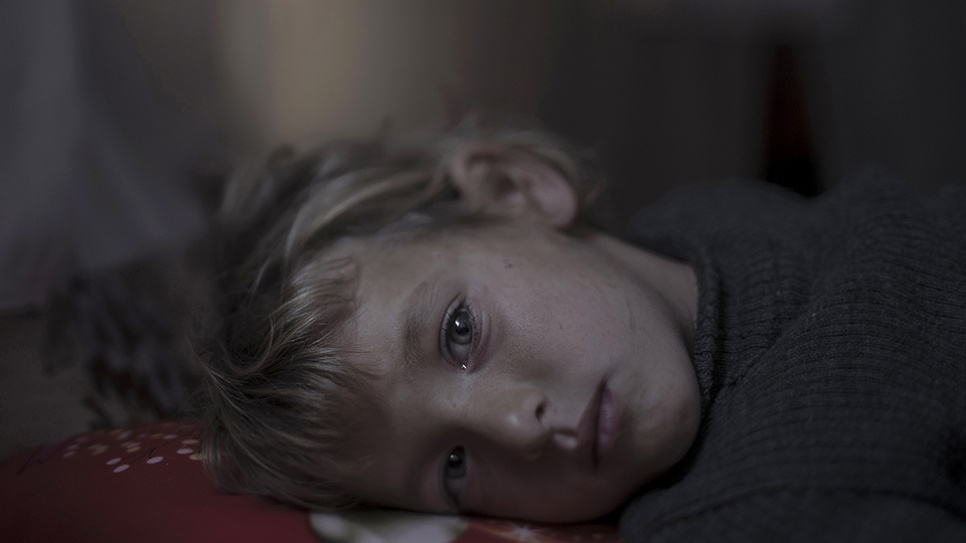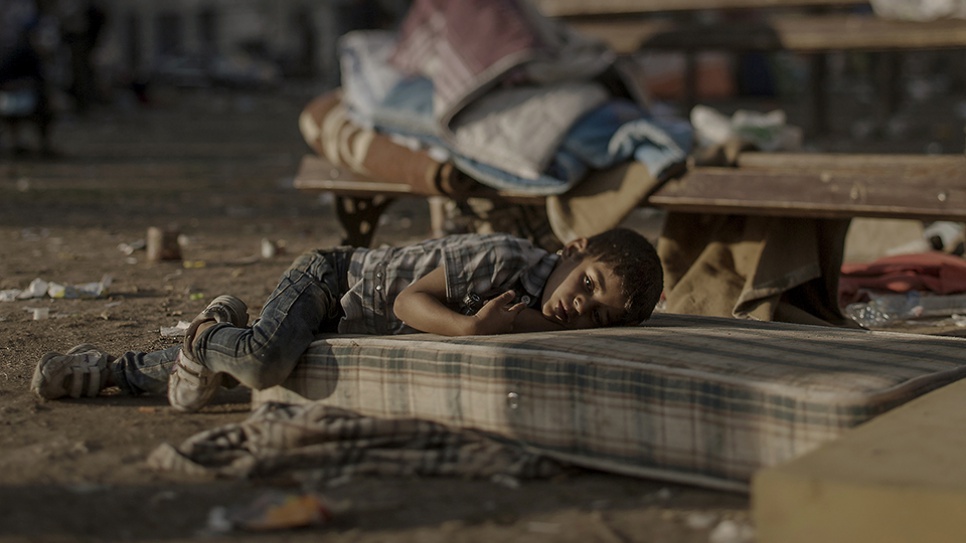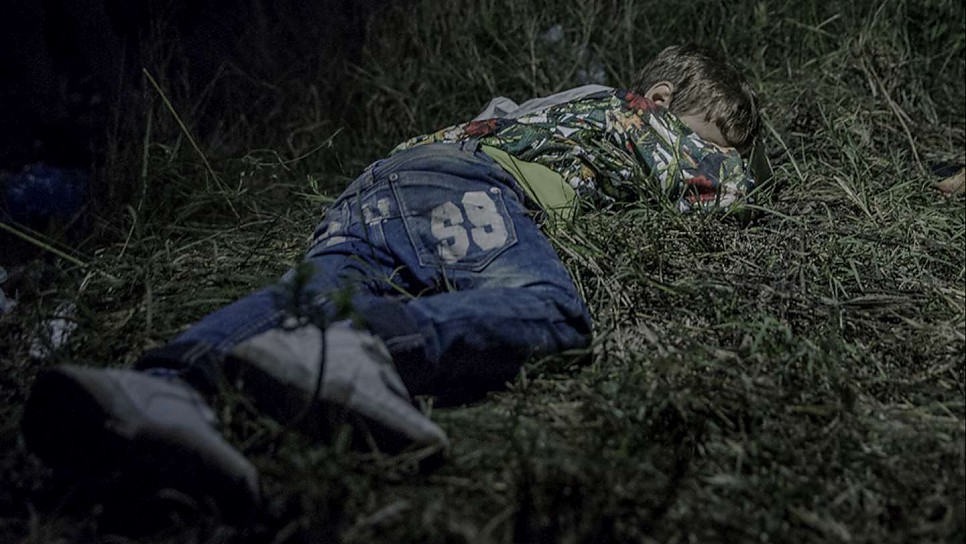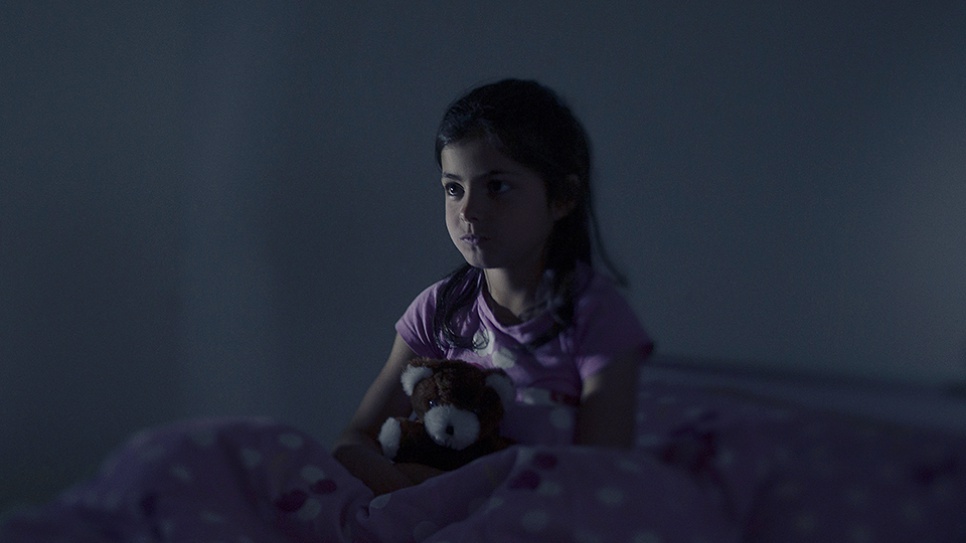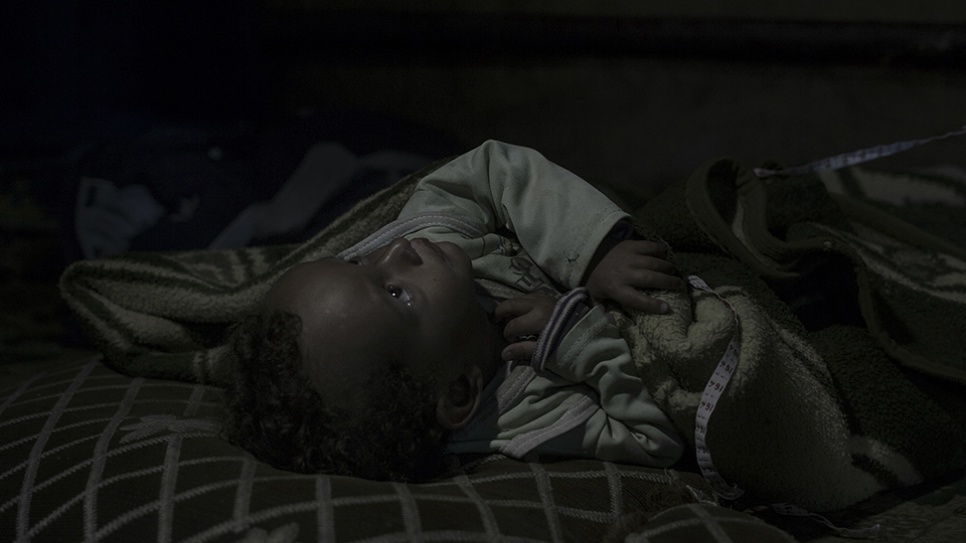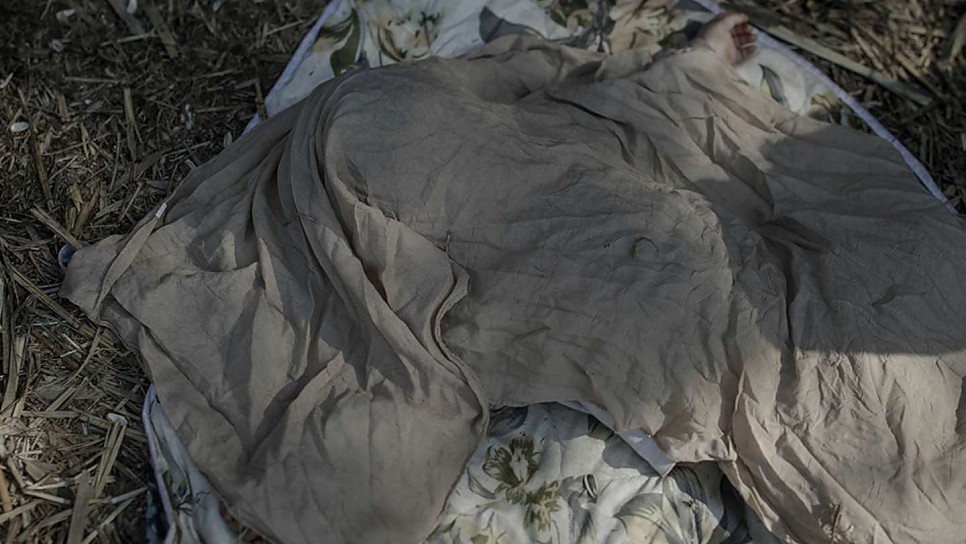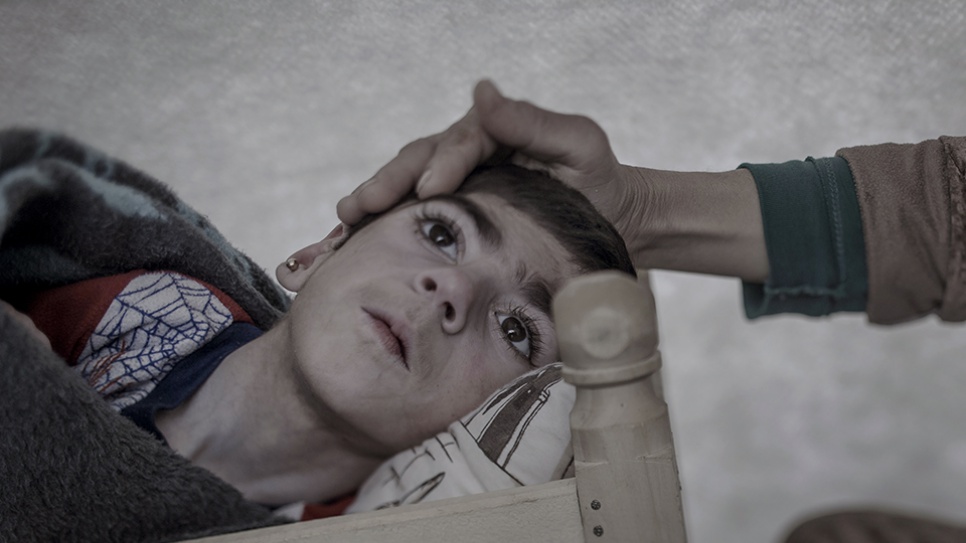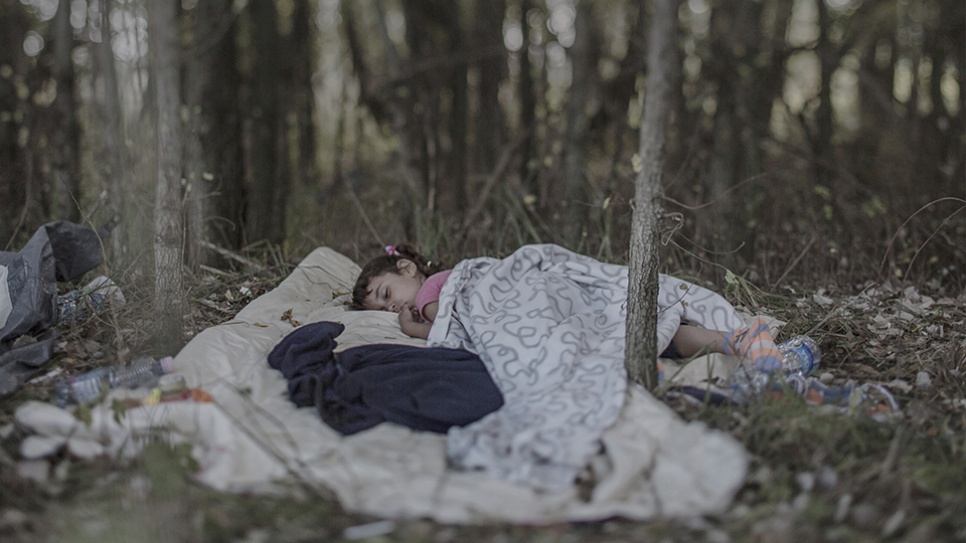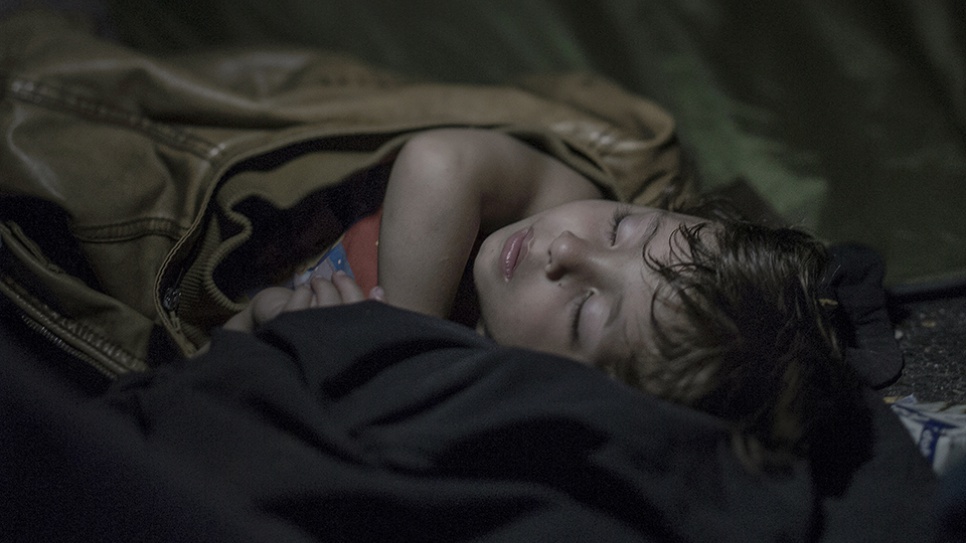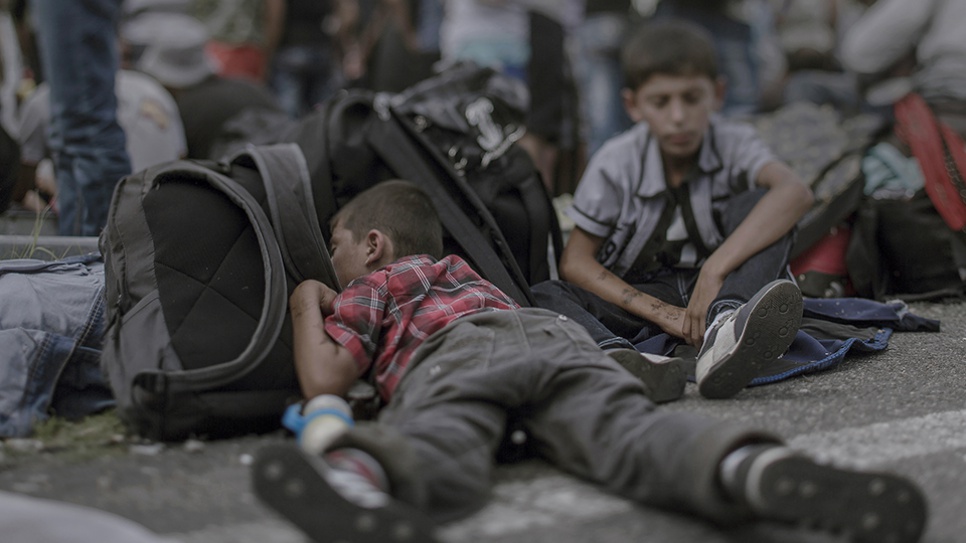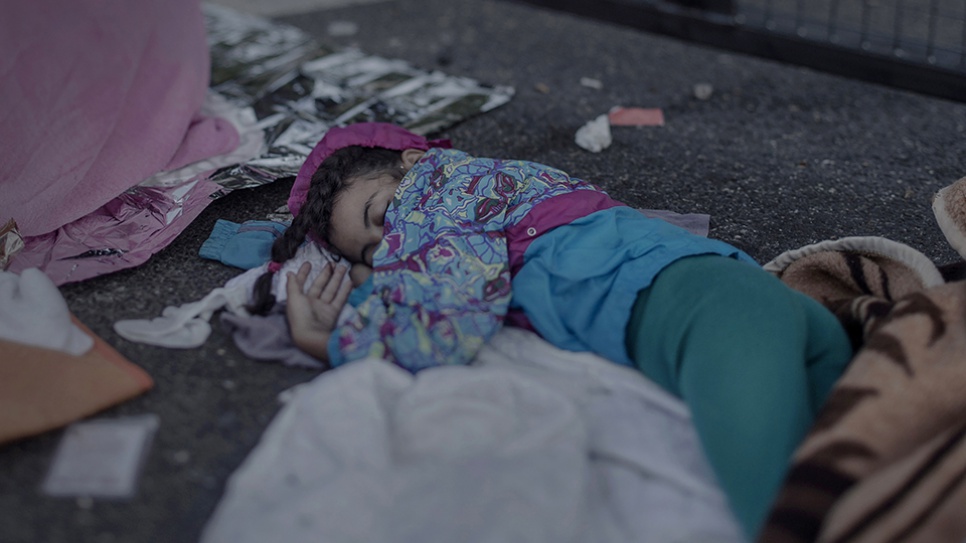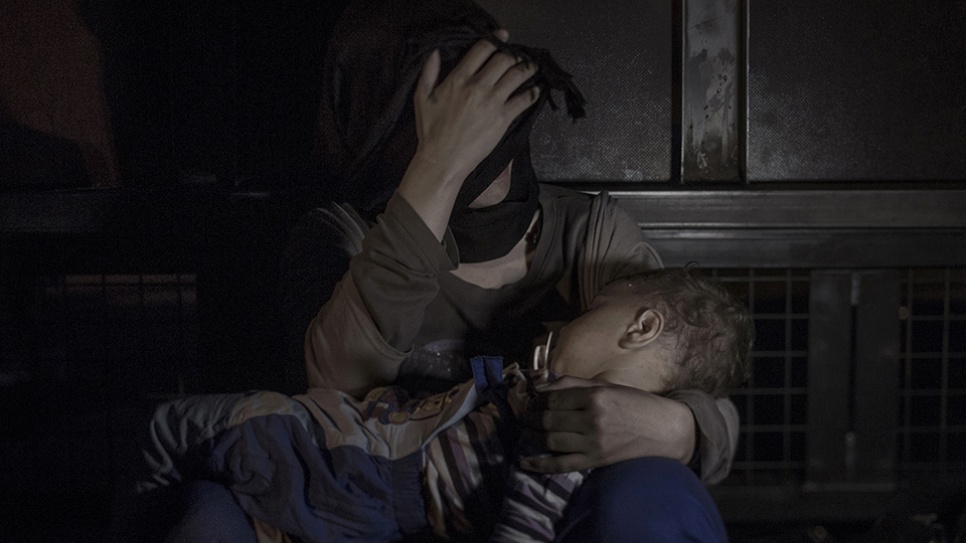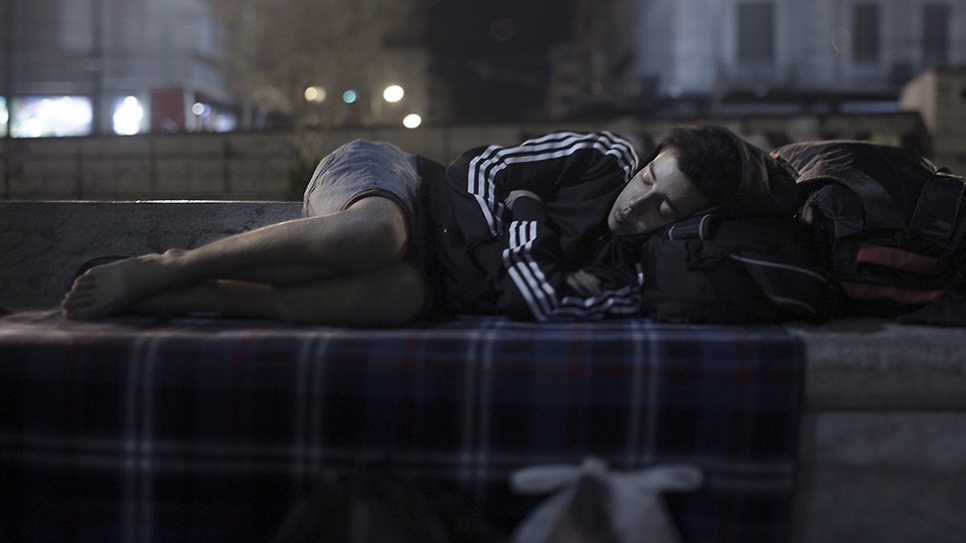On display at The New York Public Library
to commemorate World Refugee Day
June 27 - July 10
Stephen A. Schwarzman Building
Free and open to the public
|
A boy without a bed.
A girl afraid to close her eyes.
A child who dreams of when bedtime didn’t bring terror.
More than two million children have been forced from their homes by the war in Syria. Refugee children in neighbouring countries or making journeys through Europe show us where they sleep while they await an uncertain future.
Swedish photographer Magnus Wennman, winner of two World Press Photo Awards, has partnered with UNHCR, the UN Refugee Agency to raise awareness about refugee children. UNHCR, in close collaboration with Fotografiska - The Swedish Museum of Photography, has brought his award-winning exhibit to the United States for the first time.
-
Farah, who fled Syria, loves soccer. Her dad tries to make soccer balls for her using anything he can find, but they don't last long. Every night, he puts Farah and her big sister Tisam, 9, to bed hoping that tomorrow will bring them a proper soccer ball to play with. All other dreams seem to be beyond his reach, but he is not giving up on this one. © Magnus Wennman
-
Mohammed loves houses. Back home in Aleppo, Syria, he used to enjoy walking around the city looking at them. Now, many of his favourite buildings have been destroyed by the war. Lying in his hospital bed, he wonders whether he will ever fulfill his dream of becoming an architect. "The strangest thing about war is that you get used to feeling scared. I wouldn't have believed that," says Mohammed. © Magnus Wennman
-
Iman, who fled Syria, has pneumonia and a chest infection. This is her third day in this hospital bed. "She sleeps most of the time now. Normally she's a happy little girl, but now she's tired. She runs everywhere when she's well. She loves playing in the sand," says her mother Olah, 19. © Magnus Wennman
-
There's a difference between closing your eyes and sleeping, as six-year-old Gulistan knows. She prefers to shut her eyes and just pretend, because every time she falls asleep, the nightmares start. "I don't want to sleep here. I want to sleep at home," she says. She misses the pillow she had in their home in Kobane, Syria. Sometimes she lies against her mother and uses her as a pillow. © Magnus Wennman
-
When Syrian refugee Selam, 37, puts Esra, Esma and Sidra to bed, she takes comfort in the knowledge that her children are safe, and won't be attacked in the night. What saddens her is the fact that they often wake up distraught because they constantly dream about their father, who disappeared after being abducted. "I often dream that Daddy is bringing me candy," says Sidra. © Magnus Wennman
-
Five-year-old Tamam is scared of her pillow. She cries every night at bedtime. The air raids on her hometown of Homs, Syria, usually took place at night, and although she has been sleeping in exile for nearly two years now, she still doesn't realize that her pillow is not the source of danger. © Magnus Wennman
-
Eight-year-old Maram had just come home from her school in Syria when the rocket hit her house. A piece of the roof landed right on top of her. Her mother took her to a local hospital, but she had to be airlifted across the border to Jordan. The head trauma caused a brain hemorrhage, and for the first 11 days Maram was in a coma. She is now conscious, but she has a broken jaw and can't speak. © Magnus Wennman
-
Ralia and Rahaf live on the streets of Beirut. They are from Damascus, where a grenade killed their mother and brother. The girls and their father have been sleeping on the street for a year. They huddle close together on their cardboard boxes. Rahaf says she is scared of "bad boys", at which Ralia starts crying. © Magnus Wennman
-
Moyad and his mother needed to buy flour to make a spinach pie. Hand-in-hand, they were on their way to the market in Daraa, Syria, when they walked past a taxi that was carrying a car bomb. Moyad's mother died instantly. The boy, who has been airlifted to Jordan, has shrapnel lodged in his head, back, and pelvis. © Magnus Wennman
-
Walaa wants to go home. She had her own room in Aleppo, Syria, she tells us. There, she never used to cry at bedtime. Here, in the informal settlement, she cries every night. Resting her head on the pillow is horrible, she says, because nighttime is horrible. That was when the attacks happened. By day, Walaa's mother often builds a little house out of pillows, to teach her that they are nothing to be afraid of. © Magnus Wennman
-
Abdullah has a blood disease. For the last two days, he has been sleeping outside the central station in Belgrade. He witnessed the killing of his sister in their home in Daraa, Syria. "He is still in shock and has nightmares every night," says his mother. Abdullah is exhausted and is in poor health, but his mother does not have any money to buy medicine for him. © Magnus Wennman
-
It is after midnight when Ahmed falls asleep in the grass. The adults are still awake, formulating plans for how they will continue their journey through Hungary. Ahmed is six years old, and he carries his own bag over the long stretches that his family walks by foot. "He is brave and only cries sometimes in the evenings," says his uncle, who has taken care of Ahmed since his father was killed in their hometown of Deir ez-Zor in northern Syria. © Magnus Wennman
-
Every night, Fatima dreams that she's falling from a ship. She fled from the city of Idlib, Syria, with her mother, Malaki, and her two siblings to escape the terrible violence. After two years in an informal settlement in Lebanon, the situation became unbearable, and they made it to Libya where they boarded an overcrowded boat. On the deck of the boat, a pregnant woman gave birth to her baby after twelve hours in the scorching sun. The baby was stillborn, and was thrown overboard. Fatima saw everything. When the refugees' boat started to sink, they were picked up by the Italian coastguard. © Magnus Wennman
-
Amir was born a Syrian refugee. His mother, Shahana, 32, believes her son was traumatized in the womb. "Amir has never spoken a single word," she says. In the plastic tent where the family now lives, Amir has no toys, but he plays with whatever he can find on the ground. "He laughs a lot, even though he doesn't talk," says Shahana. © Magnus Wennman
-
It is 93ºF (34ºC) outside. Flies crawl on Juliana's face and she shifts uneasily in her sleep. Juliana's family has been walking through Serbia for two days. This is only part of their journey after fleeing Syria three months ago. The girl's mother lays her thin shawl over her daughter on the ground, and Juliana calms down. A few meters away from their resting place, feet are shuffling by in a seemingly never-ending flow of people. As soon as evening comes, Juliana's family will take their chance to cross the border and try to enter Hungary. © Magnus Wennman
-
Shiraz was three months old when she was struck with a severe fever. The doctor diagnosed her with polio, and advised her parents not to spend too much money on medicine for the girl who "didn't have a chance." Then the war in Syria began. Her mother, Leila, starts crying when she describes how she wrapped her daughter in a blanket and carried her over the border from Kobane, Syria to Turkey. Shiraz, who can't talk, was given a wooden cradle in the refugee camp. She lies there, day and night. © Magnus Wennman
-
Lamar left her dolls, toy train, and ball back home in Baghdad, Iraq. She often talks about these items when home is mentioned. One bomb changed everything. Her family was on its way to buy food when a bomb was dropped close to their house. "It was not possible to live there anymore," says Lamar's grandmother, Sara. After two attempts to cross the sea from Turkey in a small rubber boat, they have made it to the Hungarian border. Now Lamar sleeps on a blanket in the forest, scared, frozen, and sad. © Magnus Wennman
-
Mahdi is 18 months old. He has only experienced war and flight. He sleeps deeply despite the chaotic situation at the border. © Magnus Wennman
-
Even sleep is not an escape for Ahmad; this is when the terror returns. He was at home when a bomb hit his family's house in Idlib, Syria. Shrapnel hit him in the head, but he survived. His younger brother did not. The family had lived with war as their closest neighbour for several years, but without a home, they had no choice – they were forced to flee. Now Ahmad lays on the asphalt among thousands of other refugees along the highway leading to Hungary. This is day 16 of their flight, and the family has slept in bus shelters, on the road, and in the forest, Ahmad's father explains. © Magnus Wennman
-
Shehd loves to draw, but recently, all of her drawings have had the same theme: weapons. "She saw them all the time, they are everywhere," explains her mother while the little girl sleeps on the ground. Now she does not draw at all. The family did not bring paper or crayons with them when they fled. Shehd does not play anymore, either. The escape has forced children to become adults and share concern for the future. The family has had difficulty finding food during their journey, and some days they have had to make do with the apples they pick from trees along the road. If they had known how hard the journey would be, they would have chosen to stay and risk their lives in Syria. © Magnus Wennman
-
At the front of the border between Serbia and Hungary, next to the 13-foot-tall iron gate, Sham is laying in his mother's arms. Just a few inches behind them lies the Europe they are so desperately trying to reach. They now wait for a better future, along with thousands of other refugees. © Magnus Wennman
-
Abdul Karim Addo bought a ferry ticket to Athens with the last of his money. Now he spends the night in Omonoia Square, where hundreds of refugees arrive every day. He is able to borrow a telephone to call home to his mother in Syria, but he will not tell her how bad things are. "She cries and is scared for my sake, and I don't want to worry her more." He unfolds his blanket in the middle of the square and curls up in fetal position. "I dream of two things: to sleep in a bed again, and to hug my younger sister." © Magnus Wennman
United States exhibit presented by the UN Refugee Agency (UNHCR)
In close collaboration with:
Fotografiska - the Swedish Museum of Photography

Exhibit print production by:
McCall Photographics

Follow photographer @MagnusWennman on Instagram
For more information on the exhibit, please contact:
Lilli Tnaib
Public Information Unit
UNHCR Washington
tnaib@unhcr.org


